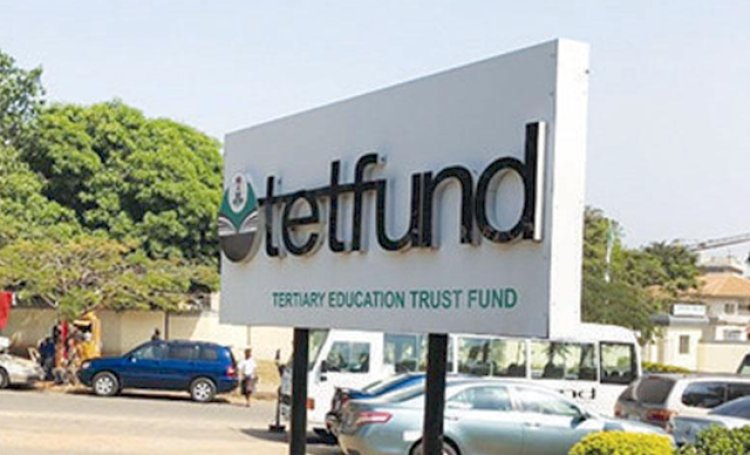In response to Nigeria’s energy crisis and the high cost of power, the Tertiary Education Trust Fund (TETFund) has begun strategic efforts to ensure stable electricity supply in public tertiary institutions. This includes the inauguration of a high-level Steering Committee on Alternative Energy Solutions, which recently submitted its report to the Fund’s management.
The committee, after conducting a nationwide energy audit in collaboration with the Rural Electrification Agency (REA), recommended the adoption of hybrid energy systems combining solar photovoltaic (PV), battery storage, grid connection, and gas-powered backups. The assessment covered universities, polytechnics, and colleges of education battling rising energy costs and unreliable electricity.
Presenting the report to the TETFund Board of Trustees in Abuja, the chairman of the committee, Honourable Sonday Adepoju, emphasised that conventional grid electricity is unreliable and diesel generators are unsustainable. He advocated for the use of gas-powered generators as cleaner alternatives in areas with access to natural gas.
The committee was inaugurated on March 12 by TETFund’s BoT chairman, Rt. Honourable Aminu Bello Masari, to assess energy usage in tertiary institutions and propose scalable, eco-friendly solutions. The team included engineers, architects, and officials from power and education sectors, such as the Federal Ministries of Power and Education, REA, NUC, NBTE, and NCCE.
Between April 13 and 17, the committee visited solar and hybrid power installations at institutions including the University of Abuja, Bayero University Kano, and Michael Okpara University, among others. Gas facilities at Greenfield Industries and Julius Berger were also inspected.
Pilot institutions selected for implementation include Ibrahim Badamasi Babangida University, Lapai; Federal Polytechnic, Nasarawa; Nigerian Army University, Biu; Federal Polytechnic, Mubi; Yusuf Maitama Sule University, Kano; and Federal Polytechnic, Daura. Others are Alvan Ikoku Federal University of Education, Owerri; Federal Polytechnic, Oko; Ambrose Alli University, Ekpoma; Federal Polytechnic of Oil and Gas, Bonny; Lagos State University; and Federal Polytechnic, Ilaro.
Institutions were chosen based on geographic spread, student population, infrastructure readiness, and exclusion from existing REA electrification programmes.
Key recommendations include deploying region-specific hybrid systems based on local solar conditions, prioritising critical facilities like hospitals and ICT centres, and phasing out or retrofitting diesel generators with gas-powered alternatives. The report also includes an implementation framework with estimated plant capacities and cost projections.
TETFund’s Executive Secretary, Arc Sonny Echono, praised the committee’s work and expressed hope that the recommendations will guide future investments in clean, reliable energy for tertiary institutions.
Meanwhile, TETFund has inaugurated a committee to begin the selection of 10 universities for the establishment of mechanised commercial farms and livestock operations under its 2025 intervention initiative.
Speaking in Abuja, BoT Chairman Masari said eligible universities must be dedicated agricultural institutions or have strong agriculture faculties, own at least 50 hectares of land, and run functional commercial farms with at least one value chain.
The newly formed Agricultural Commercial Farms Evaluation Committee is tasked with ensuring a transparent and merit-based selection process. Members include representatives from the Ministries of Education, Livestock Development, and Agriculture, as well as the NUC, Agricultural Research Council of Nigeria, and TETFund’s R&D Department.
Masari noted that agriculture is vital to Nigeria’s socio-economic development, stressing the importance of modern technologies like precision farming and data analytics. He pointed out that eight of TETFund’s 27 Centres of Excellence are agriculture-focused and that the Fund is also supporting Agricultural Research Laboratories and Demonstration Farms in six universities.
The evaluation committee, chaired by Mr. Ewara E. Bassey of the Federal Department of Agriculture, has been given a two-week deadline to submit its report. In his remarks, Bassey described the assignment as a national duty and pledged that the committee would deliver a comprehensive and impactful selection process.





